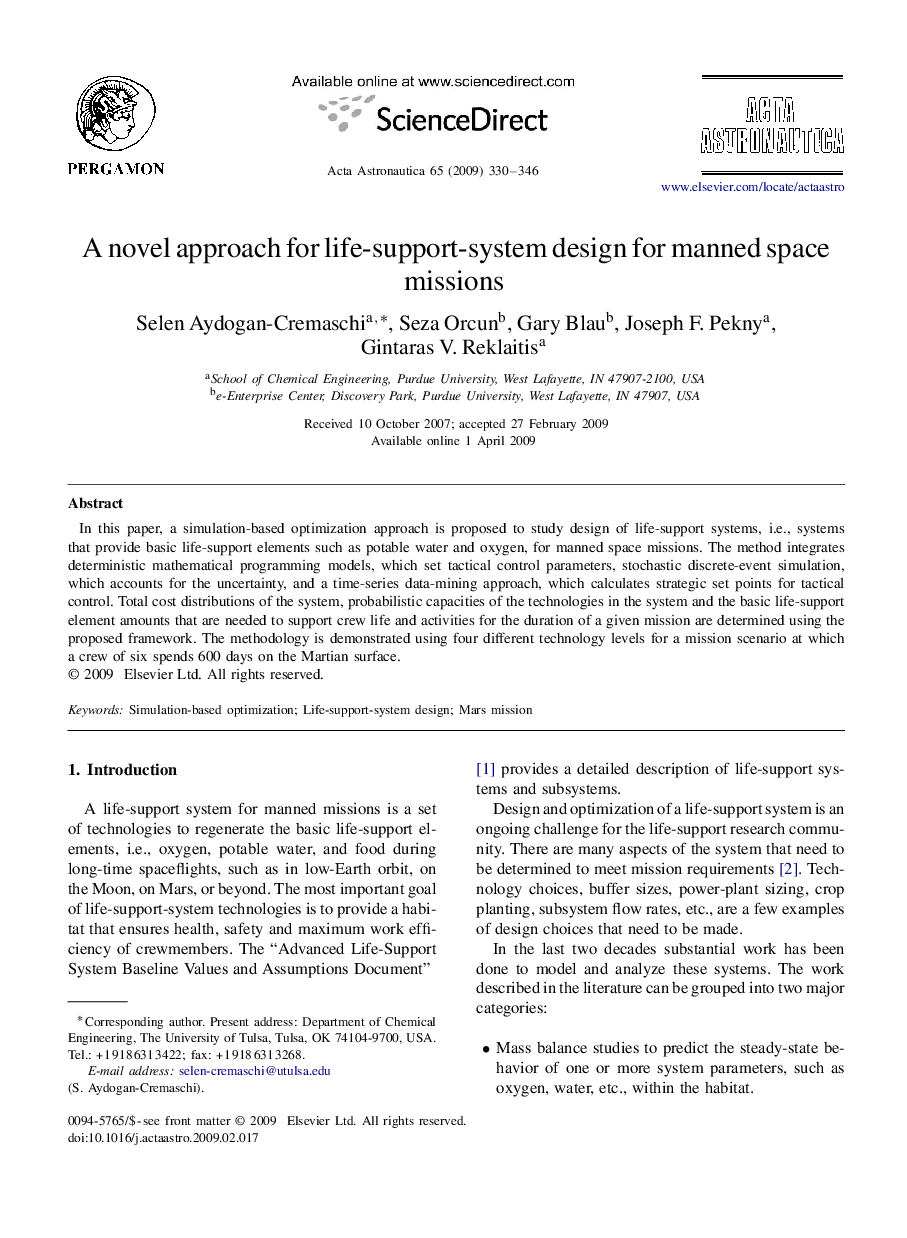| Article ID | Journal | Published Year | Pages | File Type |
|---|---|---|---|---|
| 1716624 | Acta Astronautica | 2009 | 17 Pages |
In this paper, a simulation-based optimization approach is proposed to study design of life-support systems, i.e., systems that provide basic life-support elements such as potable water and oxygen, for manned space missions. The method integrates deterministic mathematical programming models, which set tactical control parameters, stochastic discrete-event simulation, which accounts for the uncertainty, and a time-series data-mining approach, which calculates strategic set points for tactical control. Total cost distributions of the system, probabilistic capacities of the technologies in the system and the basic life-support element amounts that are needed to support crew life and activities for the duration of a given mission are determined using the proposed framework. The methodology is demonstrated using four different technology levels for a mission scenario at which a crew of six spends 600 days on the Martian surface.
